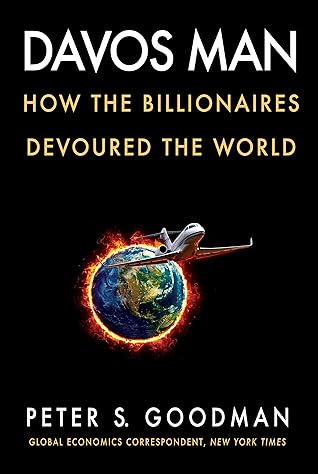More on this book
Community
Kindle Notes & Highlights
“The only legitimate goal of antitrust is the maximization of consumer welfare,” Bork wrote.22 With this formulation, Bork dismissed the generations-old American struggle to restrain the forces of monopoly, reducing the consideration of corporate conduct to one simple test: What was the impact on consumer prices? If shoppers benefited, nothing else mattered.
wages throughout American retail23 had been reduced by $4.5 billion a year as a result of Walmart driving down pay and decimating competitors. This was a neat transfer of wealth from working people to shareholders—one justified by the benefits for the consumer.
“Tax avoidance. The rich just not paying their fair share.
Davos Man’s standard evasive maneuver in the face of a predatory challenge to his wealth: Dell was arguing that philanthropy obviated the need for taxes.
“From about the 1930s through about the 1960s, the tax rate averaged about 70 percent. At times, it was up as high as 95 percent. And those were actually pretty good years for growth.”
Davos Man has also embraced stock repurchases by publicly traded companies to limit his tax burden. Until the early 1980s, that practice was barred by regulators as a form of stock manipulation. Companies that wanted to shower goodies on shareholders had to distribute dividends—cash payments that recipients were forced to disclose as income, paying taxes accordingly. But Reagan entrusted the Securities and Exchange Commission to a longtime Wall Street executive, John Shad. He legalized the practice13, opening the way for share buybacks. That gave executives a way to lift share prices while
...more
Three decades ago, the average CEO of an American publicly traded company received 42 percent of their compensation in the form of salary, and only 19 percent in stock grants and stock options. By 2014, their salary had dropped to a mere 13 percent of their pay, while stock and stock options14 had more than tripled, reaching 60 percent.
Sanders proposed a lower starting point—a 1 percent annual tax on fortunes greater than $32 million, with increases reaching to 8 percent for those whose wealth exceeded $10 billion. Both candidates relied on the advice of a now-famous pair of French economists at the University of California, Berkeley, Gabriel Zucman and Emmanuel Saez. They estimated that Sanders’s proposal could raise $4.35 trillion over a decade, giving the government the ability to furnish universal health care and childcare, while expanding affordable housing.
European wealth taxes tended to set the applicable threshold much lower than what Sanders and Warren were proposing. The wealth tax in Spain kicked in at only 700,000 euros. A retired butcher living on a modest pension could see their apartment rise in value above that threshold and suddenly face unaffordable levies, forcing them to sell their home to come up with the money. That was indeed a problem, and it explained why European wealth taxes were bedeviled by exemptions. But this had little relevance for Americans with upward of $50 million.
Summers portrayed wealth taxes as inherently counter to the American spirit of solidarity. They were “an approach that has as its center pitting workers against companies,”22 he said, and “some Americans against other Americans, rather than focusing on cooperatively making the investments we need to compete and have the stronger economy that’s necessary for everybody’s prosperity to go up.” This was quintessential Davos Man thinking.
A year into the pandemic, the coronavirus had killed6 more than half a million Americans, while more than 78 million people had lost jobs. Over the same period, American billionaires—a group numbering fewer than seven hundred people—had gained a collective $1.3 trillion7 in wealth.
Global capitalism is indeed the most advanced form of economic organization. It promotes the inspiration and exchange of groundbreaking ideas that have extended and improved life. It produces more wealth, which is a hell of a lot better than the alternative. What capitalism lacks is an inherent mechanism that justly distributes the gains. That is the responsibility of government, operating under a democratic mandate.
Davos Man is not really interested in that concept, or any ideological position. He propagates market fundamentalism when that serves as justification for things he craves—weakened regulations, diminished taxes, and license for monopoly power. We have not had free markets. We have had markets manipulated by the most powerful interests for their profit at society’s expense. We have had welfare for billionaires and rugged individualism for everyone else.


